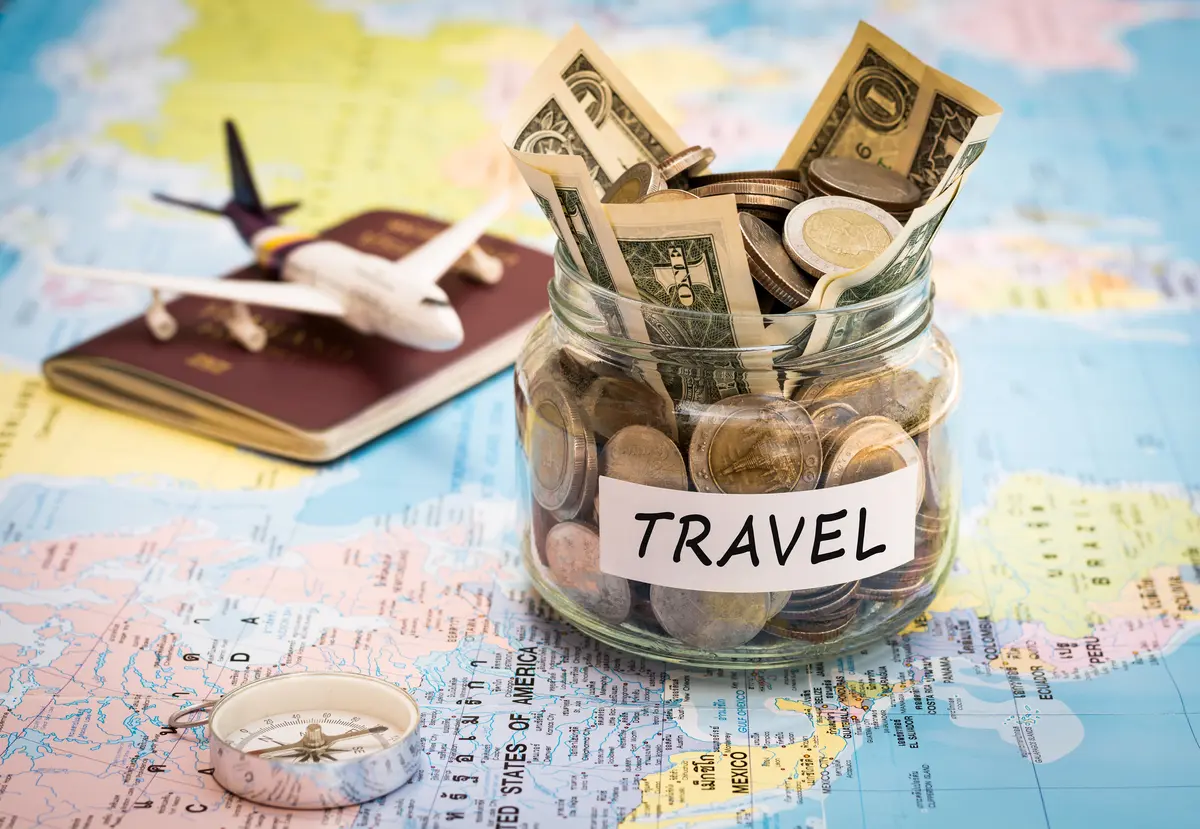How to save money for a trip: Smart travel budgeting tips
Smart tips to save for your next holiday, including how to get the best value on your travel money before you fly.

Table of contents:
Planning a trip doesn't have to break the bank. Whether you're dreaming of a beach escape, a city break, or an overseas adventure, there are several smart ways to manage your expenses.
Here’s a practical guide on the best ways to save money for a vacation, ensuring your next getaway is financially stress-free.
1. Set a travel budget early
Start by determining your destination and setting a realistic budget for your trip. Factor in flights, accommodation, activities, food, transportation, and travel money. Knowing what you’ll need in advance helps you stay on track with your saving goals.
Allocate at least 10% of your budget as a contingency buffer for unexpected costs such as luggage fees or sudden itinerary changes. Using a simple spreadsheet or a budgeting app with visual graphs can help you stay on track and motivated.
2. Create a dedicated savings account
One of the best ways to save money for a trip is to set up a separate savings account. Automate regular transfers from your main account to build up your travel fund without the temptation to dip into it. Choose accounts with no maintenance fees and consider a one-off bonus for opening.
3. Cut non-essential expenses
Review your daily and weekly expenses to find areas where you can cut back. Swapping out takeaways, unused subscriptions, or impulse buys can free up a surprising amount of money that can be redirected to your travel fund.
Limit takeaway meals by meal-prepping on weekends; even saving $10 a week on coffee adds more than $500 a year to your travel fund. Use spending tracker apps to categorize expenses and set monthly reduction targets—challenge yourself to slash one category by 10% and funnel those savings straight into your travel pot.
4. Use travel rewards and points
Leverage credit card rewards, frequent flyer points, and hotel loyalty programs. These can reduce costs significantly, especially for flights and accommodation.
Aim for cards offering 50,000+ points with minimum spend requirements that match your normal outgoings. Take advantage of referral bonuses from friends and family to boost your balance without extra spending. Keep an eye on transfer partners—many cards let you move points 1:1 to partner airlines for optimum value. Track your points and expiry dates in a dedicated app or spreadsheet to avoid losing out on free flights and nights.
5. Book early to snag the best deals
Flights and accommodation are often cheaper when booked well in advance. Use price alerts and compare platforms to secure the best value for your budget.
Aim to book international flights 6–9 months before departure, and domestic trips at least 2–3 months out. Be flexible on travel dates—weekday departures and returns can be 10–15% cheaper than weekends. When comparing options, balance refundable vs non-refundable tickets: a small premium may be worth the peace of mind if plans change.
6. Reserve your travel money online
Don’t leave currency exchange until you reach the airport. Reserve your travel money online months ahead at locked-in rates—this shields you from sudden currency swings. Prosegur Change offers 0% commission on pre-ordered currency, with convenient collection at major Australian airports.
7. Leverage off-peak travel seasons
Travelling in shoulder seasons—late spring or early autumn—can save you 10–20% on flights and accommodation. Research local school holidays and major events to avoid price spikes.
Off-peak travel not only reduces cost but also lets you enjoy attractions with fewer crowds and exclusive off-season discounts.
By planning ahead and being strategic, you can save money for vacation while ensuring you get the most out of your trip. Every dollar saved gets you closer to your dream destination!
-
Travel budgeting: how to plan your travel money
November 17, 2025
-
How to plan a couples’ holiday in Bali without overspending
October 17, 2025
-
How inflation in Thailand affects Aussie travellers’ budgets
October 2, 2025





